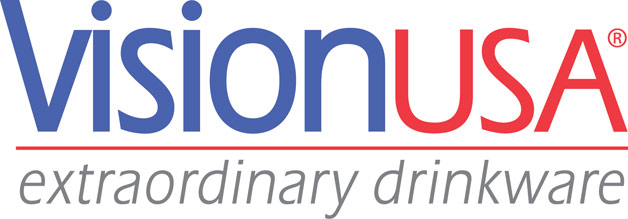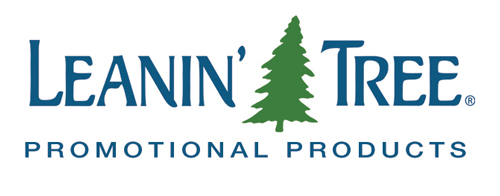


Outstanding salespeople all do one thing very well–they know how to effectively communicate. They are especially great at making small talk, meaning they know how to start and maintain conversations with new people. Making good small talk is a skill that can be learned and used by anyone who is eager to improve his or her sales!
People tend to buy from salespeople they know and like. That’s why ninety percent of sales result from existing relationships. Bonds are built between people based on information gathered during numerous conversations. Being able to make effective small talk begins the process of building those relationships.
Small Talk–a work in progress
I am asked frequently why I’m able to sell the way I do. I learned my craft from my father, who was a life-long salesman. However, I’ve learned some additional techniques along the way that have helped me be successful—such as learning how to make small talk. It didn’t come naturally, so I watched how others did it and learned from them. I now credit having the ability to make small talk for a huge part of my success, and I work at perfecting it all of the time through practice, practice, practice.
Confidence is key
Some people are very out-going, while others are somewhat shy and reserved. Those of us in the latter group tend to be less confident when it comes to handling rejection. One way to overcome shyness is by learning to ask questions that will cause others to talk, so you can sit back and listen to what they think about things. Here are some additional tips on ways to make effective small talk:
1. Ask Questions
When you meet people initially, you have a limited amount of time to connect with them. If you spend the time talking only about yourself, you will miss the opportunity to learn about them. Instead, ask them several questions, particularly trying to find out what interests them.
2. Listen Carefully
Knowing how to listen is an important skill to develop. People say many things while talking, but some of their comments are more important than others. By paying careful attention to what someone is saying, you can weed out unnecessary material and focus on the information that will help foster relationships.
3. Be Polite
People make frequent changes today in both their personal and professional lives. It’s best to avoid asking open-ended personal questions that might put someone in an awkward position. Instead, let someone volunteer that type of information at his or her own pace. The last thing you want to do is make them feel uncomfortable or under pressure.
4. Have a Few Meaningful Conversations
It’s better to have meaningful conversations with a few people than trite ones with many people. It’s better to spend more time with the people with whom you have shared interests and strengthen that bond. The best information you can glean from potential clients comes from conversations that last more than just a few minutes.
Different Personalities abound
Everyone is unique, so you will be more successful if you develop various talking and listening styles. Being able to adjust your own style to respond to the personality style of the person with whom you are visiting will help you move faster in the relationship building process. Here are some examples of personality types:
• The Big Talker
When someone talks all the time, most of what he says is useless information for the selling process. It requires you to listen very carefully to separate the meaningful comments from the extraneous statements.
• The Finisher
Finishers are nothing more than interrupters, because they always answer for you. When someone cuts you off in mid-sentence, politely agree with him or her, and then change the subject. Doing so will catch the finisher and off guard and you will regain control of the conversation.
• The Mumbler
Mumblers talk so softly that they are hard to understand. When talking to a mumbler, politely ask him to speak a little louder. Say you have a bit of congestion and are having trouble hearing. That way you won’t hurt their feelings and you’ll cause them to speak louder and clearer.
• The Zero
Some people are so withdrawn that they become paralyzed when someone tries to make small talk with them. When you run into this personality type, still make your usual pleasantries but gently excuse yourself and move on. Don’t waste time trying to make conversation with people who cannot reciprocate.
Great Opening Lines
To start conversations off on the right foot, it’s comforting to have some opening lines that build your confidence. Here are some suggestions:
• Bring up current events
If you read your local newspaper everyday, you have endless new topics to talk about with others. Perhaps your local sports team is doing well or there’s a hotly contested election in your area. When you ask people their opinions about these subjects, most are eager to give them to you.
• How’s the family?
Most people like to talk about their family members. A great way to start a conversation is by asking someone about her spouse or children. Family is important to most people and they will be flattered you asked about theirs.
• How’s business?
A great way to get someone talking is by asking about his or her business. If it has been good, they will tell you immediately. If they say it’s been bad, you might cut short the conversation because they are unlikely to be a desirable prospect.
There are hundreds of other things you can ask people that will begin a conversation. The best questions for you to ask are ones, which draw out the most favorable responses for you.
The Banter
Once someone is comfortable talking with you, it’s time to find out things that might cement a future business relationship between the two of you. Success is more likely if you get the person to first like you. He’ll be much more open to discussing business opportunities after that. At the initial meeting, keep business talk to a minimum and avoid the following common mistakes:
• I have the cheapest prices in town.
Never sell yourself short. Many people in the promotional products business have limited knowledge of the industry and only focus on price-based selling. Wait to discuss prices once you have developed a firm relationship with someone.
• I don’t like him or her
Refrain from talking poorly about others. Even if you don’t care for someone or something, keep your opinions to yourself when talking to people initially. Let others tell you what they think first.
• Don’t complain
Many people get attention by complaining about things. Don’t fall into this trap by telling others about your medical conditions or how rough things are going for you. Negative energy tends to turn off prospects, because most people prefer to visit with those with positive attitudes.
Successful salespeople build and strengthen relationships every day. They do so in order to grow and protect their client base. The best way for you to build your own business is by subscribing to the same policy. Using small talk to start and maintain conversations with people is the fastest way to grow a successful career in sales.

Most distributors who begin a career in promotional products sales have no idea how the industry got started. The information that sales people receive from day one is usually sent from suppliers and tells them which products to sell, but there is never anything told about the history of the industry. I cannot be too critical of anyone for not knowing how things got started, since I only learned about it after being a distributor for 22 years. Thought you might like to know something about your profession!
The first promotional product was buttons created in 1789 for George Washington’s Presidential campaign. Due to the success this new advertising vehicle played in promoting Washington’s election, later in the early 1800’s, other products such as wooden specialties, calendars and the Farmer’s Almanac started appearing embellished with advertising messages. As the years went on, more and more imprinted products were showing up in people’s pockets and their desks.
Give credit to Jasper Meek of Coshocton Ohio in the late 1800’s for becoming the father of the industry, when as a newspaperman; he started printing burlap bags with an advertising message. Meeks developed this idea as a way to keep his newspaper presses running during slack times. His first customer was a friend who owned a company named Cantwell Shoes. Meeks talked his friend into letting him print a brief message on bags that would be given to school children. The logic being the children would use the free bags to carry their books to and from school and when they did, potential buyers would see the message and be encouraged to visit Cantwell’s store.
Meeks begin to expand and the next item he came up with was imprinted horse covers that ended up being seen all over town. With the success of these products, Meeks started the Tuscarora Advertising Company; that is believed to be the first promotional products company. Soon after this, Meeks was faced with a competitor when Henry D. Beach, also from Ohio, started printing the same products that Meeks was offering: cloth caps, aprons, hats for horses, marble bags, card cases calendars and fans.
Both men realized the value of offering imprinted metal signs and understood that this from of advertising would enable them to expand their efforts considerably. The metal sign business became part of both men’s marketing mix and the signs they created for soft drink and beer companies are valued by collectors today.
The sale of these products was brisk for Meeks and Beach and additional printers also started adding imprinted items to what they were offering customers. When Thomas Murphy and Burke Osborne of Red Oak, Iowa begin adding images such as photographs and paintings to calendars they were printing, the demand for calendars increased rapidly. By 1894 these two men had 94 employees that included 14 traveling salesman who sold upwards of three million calendars.
As the business grew, Murphy sold his interest to Osborne who went on to expand the endeavor. The business was eventually moved to Newark, NJ and what is known today as letter press printing was used to expand the calendar business into a worldwide proposition. Plants were eventually set up in Toronto, London and in Australia.
The Advertising Manufactures Association came into being in 1904 when twelve promotional manufactures aligned themselves to address issues such as new ideas and procedures that were needed to help the industry expand. The first trade show was held in 1914 with 32 exhibitors in attendance and the association grew steadily after that time.
In 1928 the association had 132 members and due to its help promotional products became known as an effective advertising medium. Sales increased steadily and after World War II and then things really took off. In 1966 membership of what is now known as PPAI stood at 1211members and the number of show exhibitors that year was more than 300. Things have grown considerably since then as evidenced by a recent article in PPB Business that states the association just signed member number 9000.
From a single product designed to influence peoples ideas, total sales of promotional products now stands at more than $18 Billion per year and there are thousands of distributors operating today. PPAI’s most recent trade show that was held in Las Vegas drew upwards of 15,000 attendees and featured more than 3000 supplier booths. Because of this success, there are numerous other regional shows held every year and ASI holds five large shows of its on each year. Now that is a history that you need to know about!